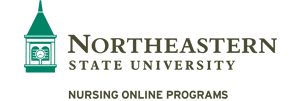If you’ve ever been to the emergency room, you know what a flurry of activity this environment presents. In the moment, it’s key for nurses, nurse leaders and other medical professionals to communicate clearly and efficiently.
Yet, good communication isn’t just important in emergencies. All nurses — no matter if they’re serving in a clinic, hospital, school or other settings — must have strong communication skills to ensure optimal outcomes. Without solid communication skills, nurses will struggle to maintain the relationships so crucial to patient care — both among the patients themselves and the family members affected by their patients’ outcomes.
Meaningful Connections Are Vital to Patient Care
Despite high volumes of workloads, particularly in the wake of the COVID-19 pandemic, nurses need to take the time to make connections and foster relationships with patients in their care. This ensures patients feel they are being acknowledged and in good hands. If an individual does not feel comfortable talking about their health, they will not get the help they need.
This is where one key communication skill enters the picture: empathy. Nurses need to listen to their patients’ concerns and convey an emotional understanding of what a patient is going through.
Additionally, tone matters just as much as listening skills. If nurses talk to patients and caregivers in a way that uplifts them and encourages them, they will perceive the nurse as a trusted advocate. Also, the ability to listen without reacting or interrupting is an essential communication skill all nurses need to have before interacting with patients. It’s natural to want to “correct” a patient’s thoughts in the moment, especially with the large amount of online misinformation accessible to patients. But, patients increasingly want to be heard, and nurses have the unique ability to deliver on that demand.
Another key communication skill is nurse leaders’ ability to relay information back to their colleagues and patients, to fully inform everyone throughout the care process. Without this aspect of nursing and nursing leadership, it would be difficult for the healthcare industry to thrive.
Success in healthcare largely relies on nurse-to-nurse communications and nurse-to-patient communications. If miscommunication happens between any set of individuals, patient satisfaction dwindles over time — ultimately setting healthcare facilities up for failure.
When Communication Breaks Down
Many factors can contribute to miscommunication between nurse and patient. For example, language barriers, inadequate healthcare literacy and a lack of cultural competency are common culprits in miscommunication. Fortunately, skilled nurse leaders can combat these obstacles and pass that knowledge down to the nurses in their charge.
Health literacy: Nurses should be knowledgeable about specific healthcare terminology in order to tell the patient what might be going on and suggest remedies. They also need to help patients find, understand and use the information to coach the patient about current and future health-related decisions.
Cultural competency: Nurses need to understand their patients’ different cultures and customs. This insight includes diverse beliefs, attitudes, values and behaviors. A lack of cultural competency can harm the patient or make them feel uncomfortable.
Language barriers: While not all nurse leaders and staff nurses need to speak multiple languages, they still need to appreciate a patient’s chosen language and help them in the best way they can. Making patients feel comfortable, even if there is a language barrier, is an essential aspect of nursing and patient satisfaction.
Maximize Your Communication Skills With an MSN Degree
One way to advance your communication skills as a nurse is to further your career in nursing leadership and earn your Master of Science in Nursing (MSN) degree. Those who enroll in the Registered Nurse (RN) to MSN in Administrative Leadership online program at Northeastern State University will create a strong foundation for effective and compassionate nurse leaders.
This program allows students to progress into nursing leadership positions quicker than many “traditional” programs. Nurses can complete the program in as few as 24 months.
However, this accelerated approach does not diminish outcomes. All students will learn the valuable skills needed to thrive as nurse leaders within the demanding world of healthcare. For example, the Cultural Perspectives course covers the basic principles of cultural competency, focusing on both regional and global populations. In the Issues & Trends in Professional Nursing course, nurses may uncover specific challenges related to communication.
Future nurse leaders will obtain the knowledge required to not only secure top positions in their field but also become better nurses for their patients and colleagues.
Learn more about Northeastern State University’s RN to MSN in Administrative Leadership online program.


